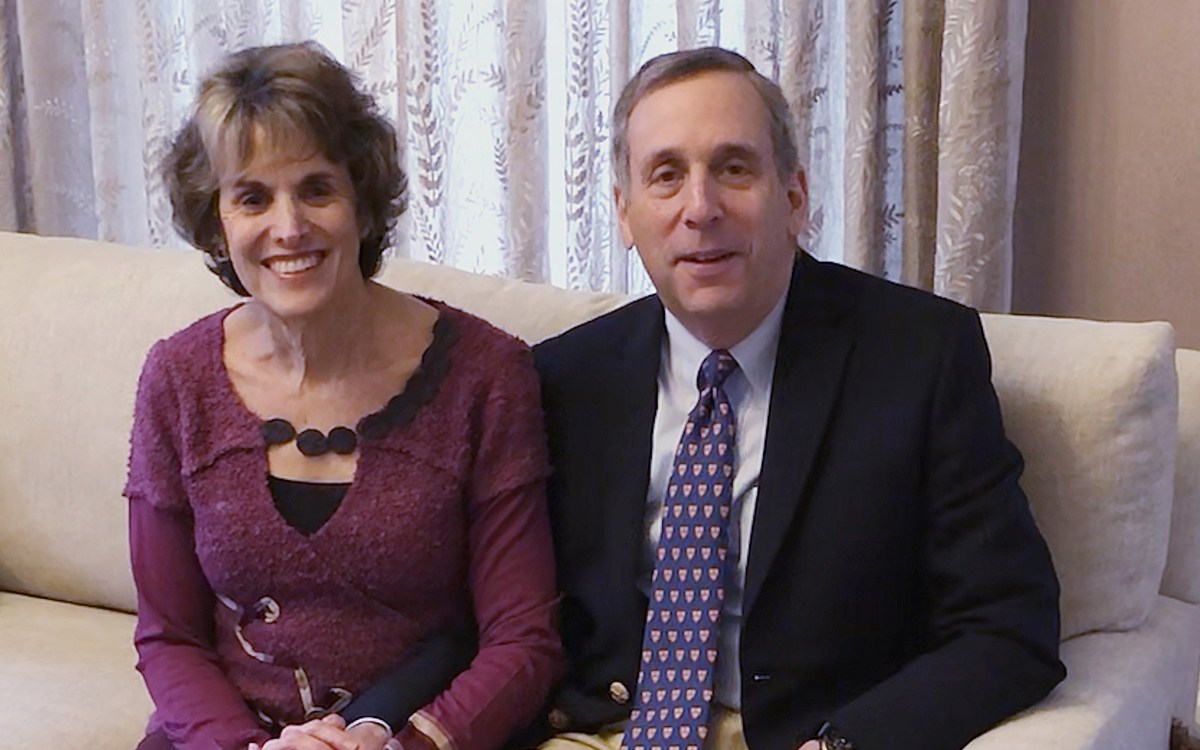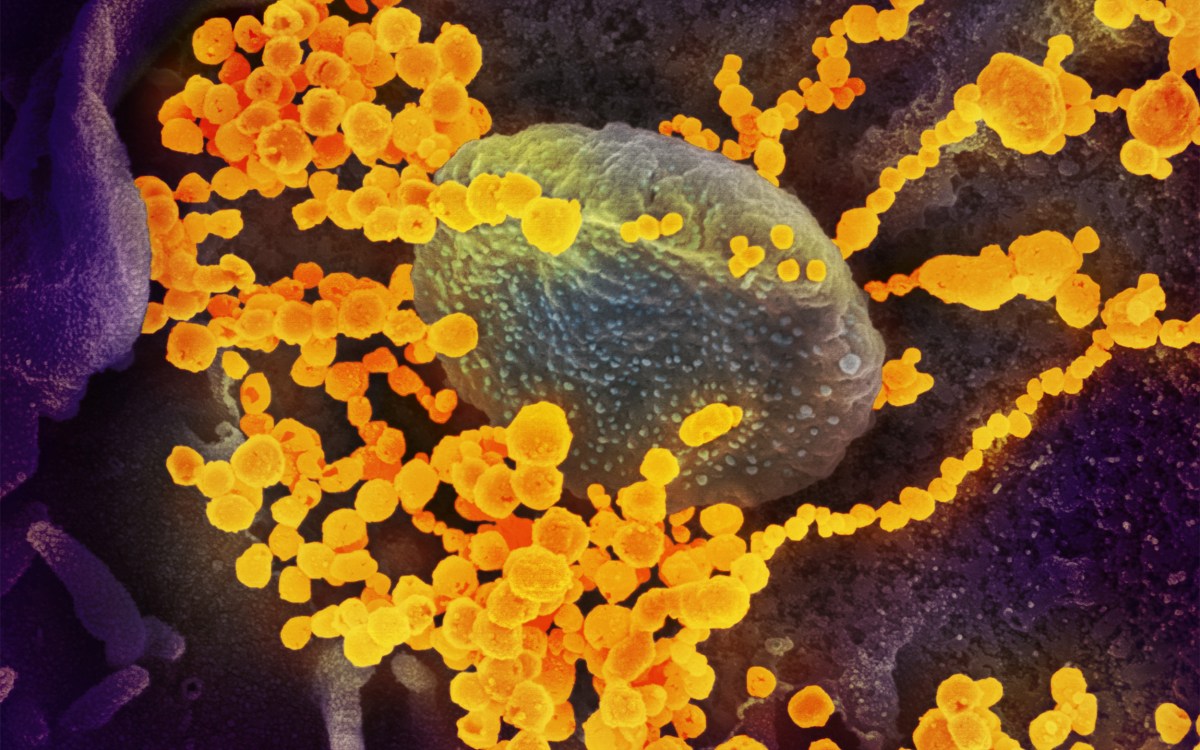
Rose Lincoln/Harvard Staff Photographer
Hope for managing hospital admissions of COVID-19 cases
New projections suggest social-distancing measures in state may be flattening the curve
This is part of our Coronavirus Update series in which Harvard specialists in epidemiology, infectious disease, economics, politics, and other disciplines offer insights into what the latest developments in the COVID-19 outbreak may bring.
Projected COVID-19 caseloads at the state’s largest health care system indicate that social-distancing measures have worked well enough that Massachusetts General Hospital (MGH) will be able to avoid the kind of harrowing situation Northern Italy faced when a surge of patients outstripped the region’s ability to respond, a top emergency-preparedness physician said Thursday.
Paul Biddinger, medical director for emergency preparedness at Partners Healthcare and vice chairman for emergency preparedness in Mass General’s Emergency Medicine Department, said the most recent modeling indicates the epidemic’s peak will stretch but not overwhelm the 1,000-bed hospital’s beds, staff, and equipment — in particular its supply of ventilators for patients who need help breathing.
“Roughly about a week to two after the implementation and then strengthening of social distancing — physical distancing — instructions from the governor, from multiple mayors here in Eastern Massachusetts, we now have seen that our curve of arriving patients, both with general illness and critical illness, has decreased,” said Biddinger, who is also associate professor of emergency medicine at Harvard Medical School and visiting senior preparedness fellow at the Harvard T.H. Chan School of Public Health.
Biddinger said there are currently 220 to 230 COVID-19 patients at MGH, 110 of them in intensive care. The hospital has about 150 critical-care beds and the capacity to increase that to 300. Of the COVID-19 patients in those beds, more than 100 are on ventilators — all of the traditional devices the hospital has and roughly twice the number it regularly has in use. Biddinger said the hospital expects 200 critical-care patients at the epidemic’s peak, but has access to enough transport ventilators and anesthesia machines, which can perform the same function, to support the demand.
“Now, for about a week or so, our data no longer looks as much as it did like a Northern Italian situation,” said Biddinger
More like this
He said modeling shows that the Boston region, where MGH and other Partners Healthcare facilities are located, is one to two weeks away from peak demand. The apex for intensive care would lag that by a few days, due to the extra time it takes for a case to become serious.
Besides Mass. General, the Partners chain also includes Brigham and Women’s Hospital and several smaller and specialty facilities, such as McLean Hospital, Spaulding Rehab, Newton-Wellesley Hospital, and North Shore Medical Center.
“We are cautiously optimistic that, with the numbers we are anticipating, we will have enough ventilators and we will have enough Intensive Care Unit spaces,” Biddinger said.
Biddinger cautioned that anticipating a flattened peak does not mean the crisis is over. He said that MGH’s staff is holding up, though tired from the extraordinary effort. Some are anxious about the possibility of contracting the disease, but confidence in protective equipment and procedures will likely grow, barring a spike in health-care worker infections. Despite that anxiety, he said there’s also a sense of purpose that is apparent when he walks the halls and realizes how the facility and its people have responded to the challenge.
“You can really feel the mission, especially on these floors that have been turned into ICU spaces,” Biddinger said. “You might think people are overwhelmed or scared, and it’s exactly the opposite. It’s extraordinary. A lot of people do feel proud to be able to take care of patients during this time.”
The COVID preparations extend throughout the Partners Healthcare system, Biddinger said, including places like the Massachusetts Eye and Ear Infirmary, which has loaned staff and bed space to MGH next door. If there are available beds in the Partners system, they will be made available to other hospitals should they reach capacity.
“We’ve done an extraordinary amount of work. Hundreds and hundreds of people have done yeoman’s work to open up new ICU spaces, to move ventilators around, to come up with contingency plans, to work exceptionally hard … to help us be in the position we’re in,” Biddinger said. “There are many, many more weeks of hard work ahead of us.”










